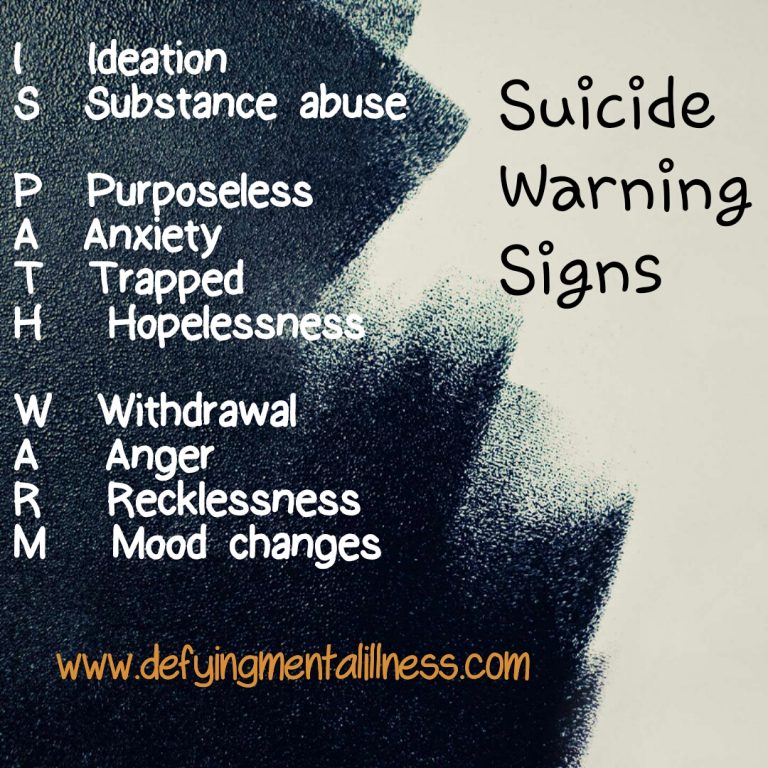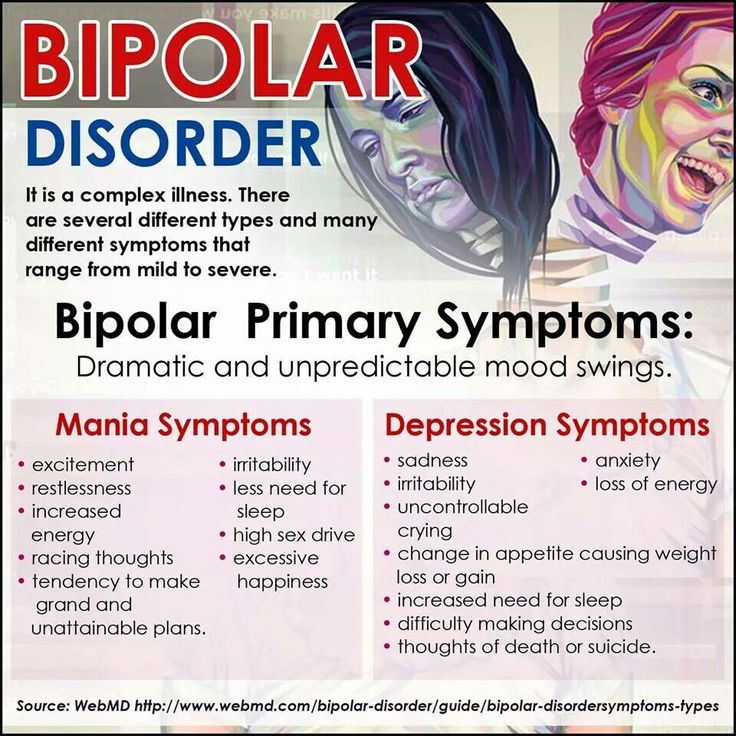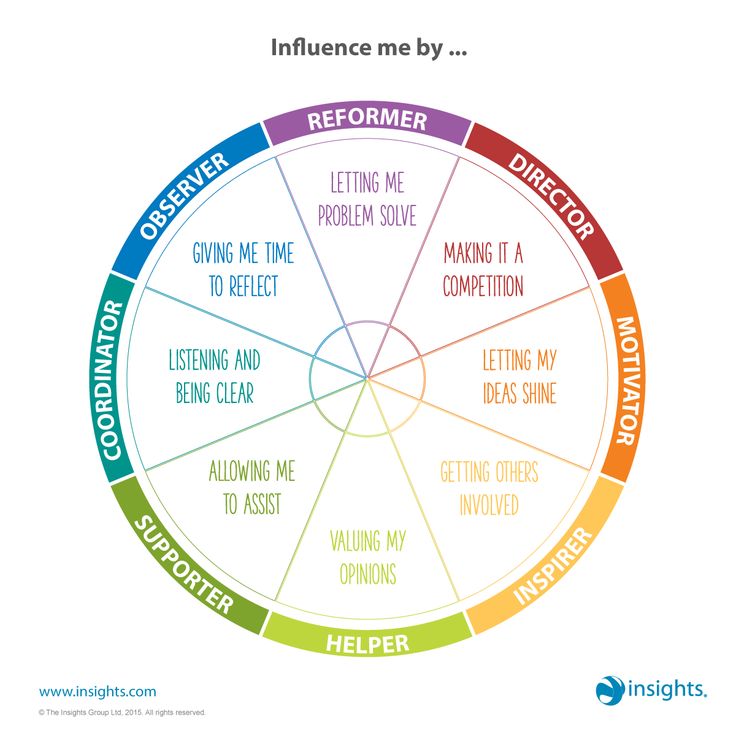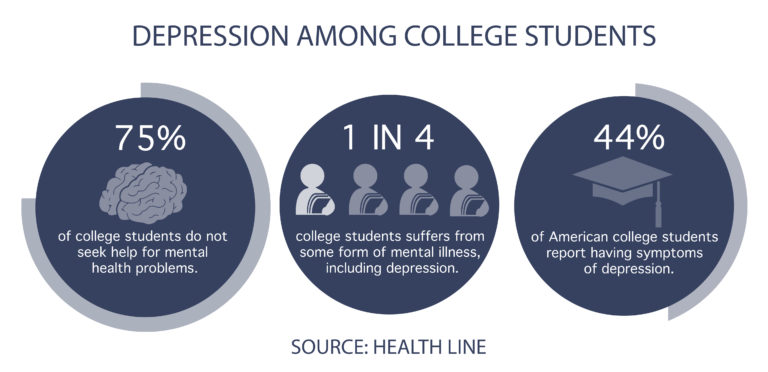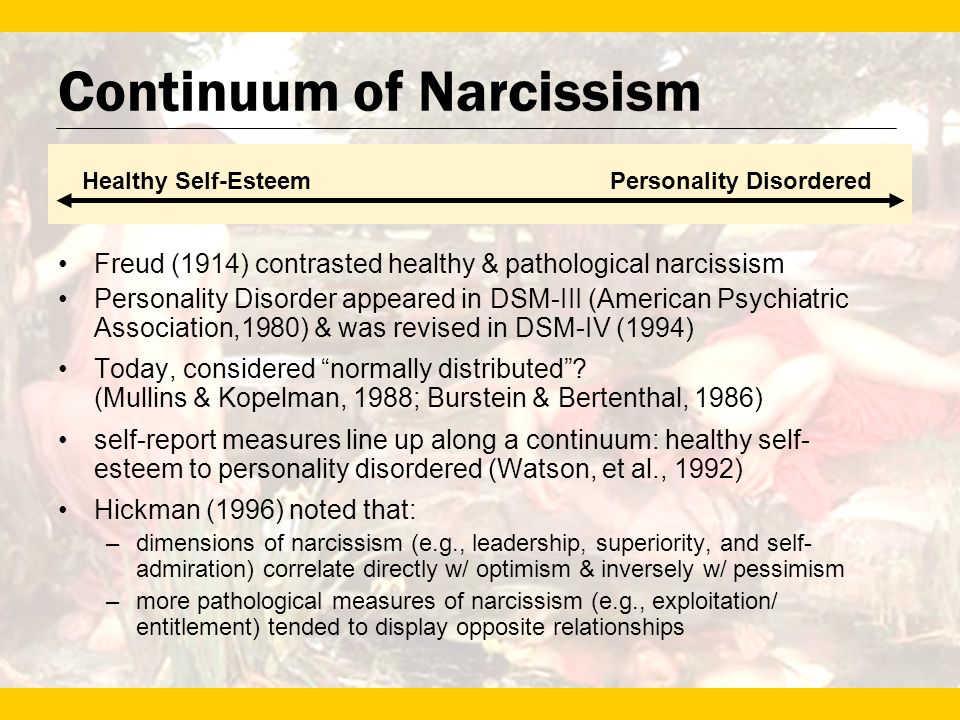Emotionally safe relationships
Creating Emotional Safety In Relationships -
Posted on March 1, 2022 by Karla Reimer, MA
When couples come for Marriage counselling, the most common concern they share with me is their struggle around communication. Most couples say that if their communication was better, they could work through problems that arise in their relationship on their own. I do agree with this assessment, but also believe there’s one more important layer that needs to be in place for good communication to occur. This foundational element is emotional safety. Emotional safety is the feeling of trusting your partner with your emotional well-being. It means that you believe your partner cares about your own emotional experience and vice versa. Emotional safety means that we feel comfortable sharing with our partner our hopes, fears, vulnerabilities and pain, because we trust that our partner will tend to these emotions with warmth and concern. Emotional safety is established when you share your feelings, and your partner conveys back to you that they care about your pain, hurt, emotional experience, etc.
The listening partner shows how important his or her partner’s pain is through:
- Empathy – understanding what the experience would be like from your partner’s perspective (“That must have been really stressful when…”)
- Validation – affirming that your partner’s pain is legitimate (“It makes sense to me that you would feel _____ in that situation”)
- Body language – as your partner is sharing you reach out and take your partner’s hand, or stroke their arm, or make eye contact
- Putting your own feelings, thoughts, and comments on hold while you focus on your partner’s pain until your partner has shared all of their feelings and feels understood
One of the biggest hurdles that couples struggle to overcome in establishing emotional safety is that sometimes our partner’s pain is a result of something we have or haven’t done. Hearing your partner share their complaints and frustrations about you is difficult because we don’t want to disappointment our partners or feel like we fall short in some way as a partner. As a result, we might become defensive, and rather than fully listening to our partner share, we respond by vocalizing our own complaints. Here are some guidelines to be aware of to help you and your partner create more emotional safety in your relationship:
As a result, we might become defensive, and rather than fully listening to our partner share, we respond by vocalizing our own complaints. Here are some guidelines to be aware of to help you and your partner create more emotional safety in your relationship:
- Whoever expresses their emotions first (whether through words or body language) gets to share their feelings completely first
- Even if your partner is sharing complaints about something you have or haven’t done, try to remain focused on what they are sharing and not on preparing a response or retort to what he or she has shared.
- Be aware of how your partner’s sharing makes you feel. Once your partner has shared their pain and you have validated their emotions, it’s okay to share with your partner these tender emotions (“It was hard for me to hear you share about ______ because I hate the thought of disappointing you.”)
- Before you share your perspective or your “side” of the issue, check to make sure your partner feels fully understood.
 Once it is clear that your partner feels understood, and you can see that he or she has calmed down, you can begin to gently share your own feelings.
Once it is clear that your partner feels understood, and you can see that he or she has calmed down, you can begin to gently share your own feelings.
If you are the partner who is sharing, here are some important guidelines to consider to help your partner feel more willing to listen and to help them from getting defensive.
- Speak calmly and gently. If you are feeling worked up about something, try calming yourself down as much as possible before engaging in the discussion with your partner.
- Remember that if you are sharing a complaint specifically about your partner, a defensiveness response is more likely; it’s not easy hearing someone we love share how we may have disappointed them. Try to be sensitive to this, and express to your partner how much they mean to you in light of your disappointment.
- Try to give your partner the benefit of the doubt. If you’re feeling upset because your partner didn’t follow through on a promise, rather than accusing him or her of not caring, a better response might be: “I was hurt when I saw you forgot to make arrangements for our evenings, because it makes me fear that I’m not important to you, even though I know it probably happened because your boss has been making you work so much over-time lately.
 ”
”
Emotional safety is developed when the partner sharing their feelings talks gently, and when the listening partner focuses on what their partner is sharing and responds with warmth and caring. As you build emotional safety, you will feel increasingly comfortable communicating problems you are experiencing in your relationship. Karla Reimer, MA specializes in the areas of grief, couples work, addictions and emotional regulation as well as many others. For more information on Karla, her work, or other articles she’s written for Living Well click here to link to her full bio page.
How to Create Emotional Safety in a Relationship: 7 Tips
Understanding how to create emotional safety is key to fostering meaningful connections and healthy relationships.
Emotional safety is the foundation for a loving and healthy relationship. It’s about establishing trust with another person and feeling safe enough to be open and vulnerable with them.
To put it simply, emotional safety is feeling secure enough to truly express yourself with someone and show up as your most authentic self.
Emotional safety also goes both ways. When you feel emotionally safe and reveal your true self, it opens the door for your partner to do the same. And when both people in a relationship feel secure, it provides a safe environment where a deeper and more loving connection can form.
Safety matters
Emotional safety does not apply to abusive relationships. If you’re experiencing abuse, whether physical or emotional, you have several options for seeking help. Try reaching out to a trusted friend, family member, or therapist or calling a domestic violence hotline.
When you find yourself in an emotionally safe relationship, chances are you’ll experience many advantages as a result. Benefits of emotionally safe relationships include:
- You feel valued and valuable.
- You can truly be yourself without the risk of judgment.
- You can show your weaknesses without being taken advantage of.
- You can share boldly and express yourself freely.
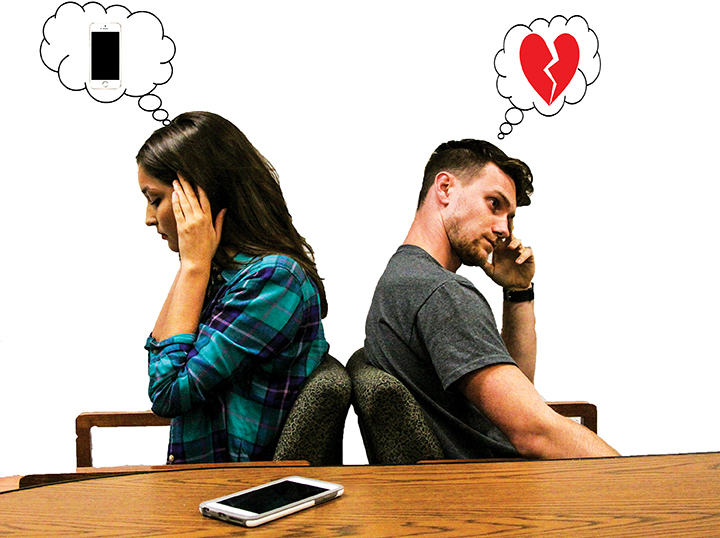
- You feel seen, heard, and understood.
More importantly, an emotionally safe relationship creates a stronger connection.
Of connection, Brené Brown, author and research professor of social work at the University of Houston, said it best: “I define connection as the energy that exists between people when they feel seen, heard, and valued; when they can give and receive without judgment; and when they derive sustenance and strength from the relationship.”
Wondering how to build emotional safety or unsure where to start? We’ve broken down seven helpful ways to cultivate trust and vulnerability in any relationship.
Respect boundaries and consent
Setting and respecting boundaries can increase safety and security in a relationship by establishing personal limits. By communicating a limitation, you let your partner in on your preferences and invite them to share their own. Think of boundaries as not only protecting yourself but also protecting your relationship.
Boundaries can be physical, sexual, intellectual, emotional, or financial — all critical to nurturing respect in a healthy relationship. Once you set a boundary, it’s crucial that you and your partner respect it. Some examples of boundaries that promote emotional safety are:
- honoring what is important to you
- sharing personal information gradually
- protecting your time by not overcommitting
- asking for space when you need alone time
- communicating your comfort level on intimacy
Pay attention to your nonverbal communication
Body language is essential for emotional safety.
Vocal tone, eye shape, posture, and other micro expressions are continuously being interpreted by you and your partner, whether you realize it or not. “If you approach your partners with hard eyes, tightly pressed lips, and short words, they may not feel safe,” says Dr. Jake Porter, a Houston-based licensed professional counselor.
“The key here is to realize that we are each responsible not only for the words we say but also the way we send them,” he adds.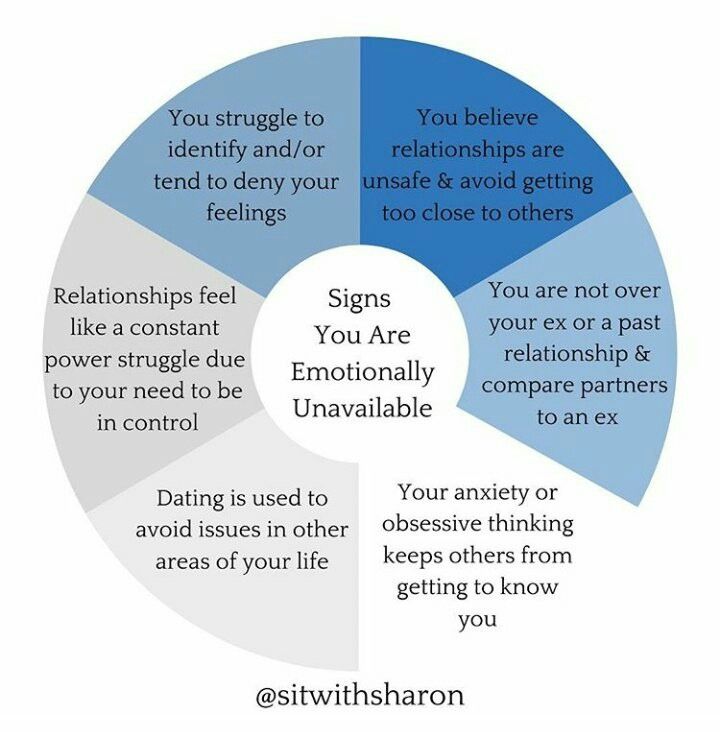
It’s a good idea to practice paying attention to the nonverbal communication you’re carrying with you before you approach your partner. Consider asking yourself, “What is my body language communicating right now?”
Be an active listener
Active listening is a critical component to a healthy relationship because people need to feel heard and understood to feel secure and validated. “Active listening is when you set aside your defenses and distractions, and truly take in what your partner is telling you,” explains Dr. Isabelle Morley, a licensed clinical psychologist based in Massachusetts.
“The ability to actively listen means that whenever fears or issues arise, your partner will feel comfortable telling you,” she adds. “Instead of the problem growing or your partner becoming resentful, you’ll be able to quickly and easily address it.”
Some ways to practice active listening include:
- nonverbal signs of listening like smiling, nodding, and maintaining eye contact
- asking your partner questions or asking for clarification
- summarizing or reflecting back on what was said
Practice transparency
Transparency is an important part of building trust and emotional safety.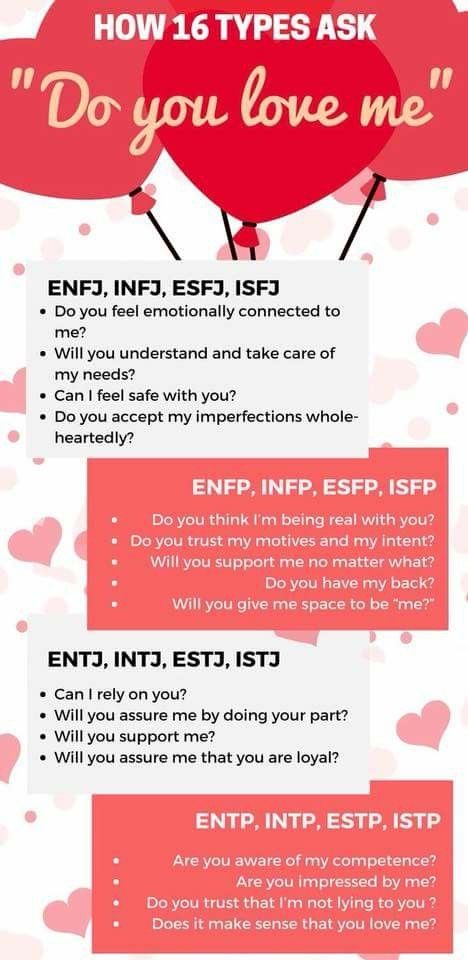 When you practice transparency, you eliminate the potential feeling that you or your partner are hiding something from each other.
When you practice transparency, you eliminate the potential feeling that you or your partner are hiding something from each other.
While you don’t need to share every part of your life with your partner, “general openness about your thoughts, feelings, and activities is a good way to build trust, communication, and security,” says Morley.
Give your partner the benefit of the doubt
Giving your partner the benefit of the doubt means removing judgment and, instead, being curious to learn about the motivation for their behavior. “Most people’s motivations are subconscious and often connected to their own baggage they bring to the relationship,” says Baltimore-based certified imago relationship therapist Rabbi Shlomo Slatkin.
“When we stop judging and making up stories of why our partner did what they did, we begin to look at them favorably from a place of compassion and understanding,” he adds. “We may disagree with them, but we can at least create a safe environment without confrontation.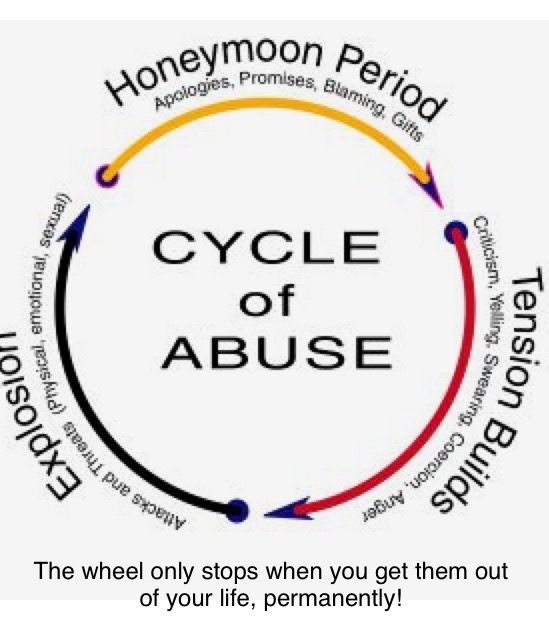 ”
”
Foster accountability and follow through
Following through shows your partner that you are dependable and value the relationship. When you commit to something and follow through, you actively build trust by showing your partner your loyalty. Yet following through doesn’t have to happen overnight.
Even when you take small steps, enabling your partner to see your consistent effort shows them your commitment to the relationship. Try keeping your partner in the loop, as this will help you hold yourself accountable too.
Consider couples or relationship therapy
A mental health professional’s perspective can help people in relationships build emotional safety by focusing on dealing with conflict rather than focusing on the conflict itself.
“Couples therapy fosters emotional safety by helping couples understand how they work together as a system,” explains Porter. “When I work with couples, I’m less interested in the content of what they are fighting about than the process of how they fight.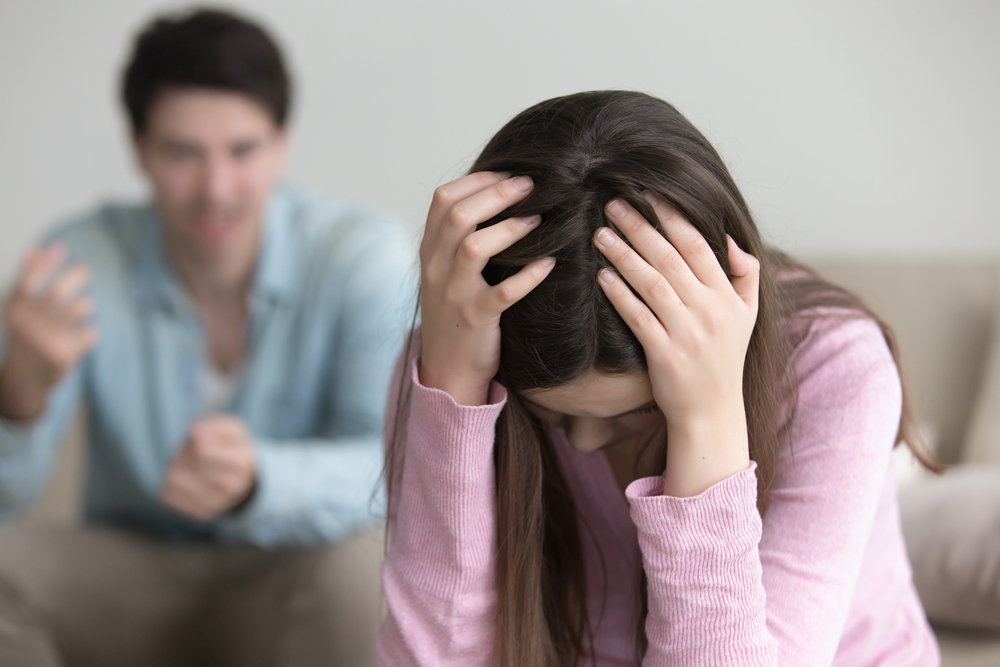 ”
”
“Focusing on the content might help them in the moment as I mediate a dispute, but they are just going to end up right back in the therapy office next time they can’t agree,” He adds. “Instead, by helping them create a new process for how they approach conflict to set them up for success as life continues to throw challenges their way.”
Emotional safety is key to a healthy and happy relationship. There are countless ways to create emotional safety, and some may work for you better than others. Consider trying a few of the ways we’ve identified and decide which ones work best for you and your partner.
While it may take time to build emotional safety, the result is a relationship built on mutual trust, respect, and unconditional support. Not only will you find yourself seen, heard, and understood, but you will find yourself feeling more connected to yourself and your partner. Try to be patient with each other, and then watch the benefits of being open and vulnerable unfold.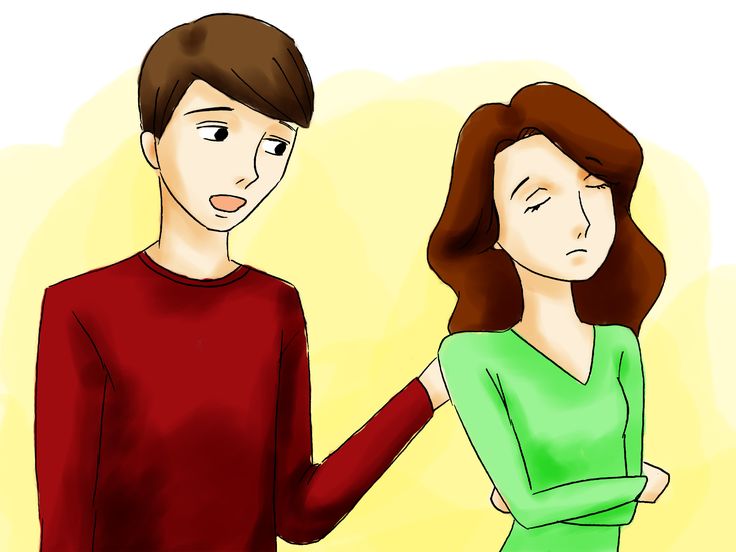
7 Ways to Create Emotional Security in a Relationship - The-Femme
Understanding how to create emotional security between partners is the key to making meaningful connections and healthy relationships.
Emotional security is the foundation of loving and healthy relationships. It's about establishing trust with the other person and feeling secure enough to be open and vulnerable with them.
Simply put, emotional security is the feeling of being secure enough to truly express yourself with someone and express yourself as you really are.
Emotional security is also two-sided. When you feel emotionally secure and open to your true self, it opens up an opportunity for your partner to do the same. And when both people in a relationship feel secure, it creates a safe environment in which a deeper and more loving connection can form.
What are the benefits of an emotionally secure relationship?
When you find yourself in an emotionally secure relationship, you will most likely reap many benefits as a result. The benefits of an emotionally secure relationship include:
The benefits of an emotionally secure relationship include:
You feel appreciated and valued.
You can truly be yourself without the risk of being judged.
You can show your weaknesses without taking advantage of them.
Feel free to share and express your thoughts freely.
You feel seen, heard and understood.
More importantly, emotionally secure relationships create a stronger bond.
Regarding connection, Brené Brown, author and professor of social work at the University of Houston, said it best: “I define connection as the energy that exists between people when they feel seen, heard, and appreciated; when they can give and receive without judgment; and when they draw support and strength from the relationship.”
Not sure how to achieve emotional security or where to start? We've identified seven helpful ways to build trust and vulnerability in any relationship.
Respect Boundaries and Consent
Establishing and respecting boundaries can increase the security of a relationship by setting personal limits. By reporting a restriction, you allow your partner to share your preferences and invite them to share their preferences. Think of boundaries as protecting not only yourself, but also your relationships.
By reporting a restriction, you allow your partner to share your preferences and invite them to share their preferences. Think of boundaries as protecting not only yourself, but also your relationships.
Boundaries can be physical, sexual, intellectual, emotional or financial, all of which are critical to building respect in healthy relationships. Having set boundaries, it is very important that you and your partner respect them. Here are some examples of boundaries that promote emotional security:
- respect what is important to you
- share personal information gradually
- save your time by not overdoing it
- ask for time alone when you need to be alone
- report your level of comfort in intimacy
Pay attention to non-verbal communication
Body language is important for emotional security.
Tone of voice, shape of eyes, posture and other microexpressions are constantly being interpreted by you and your partner, whether you are aware of it or not.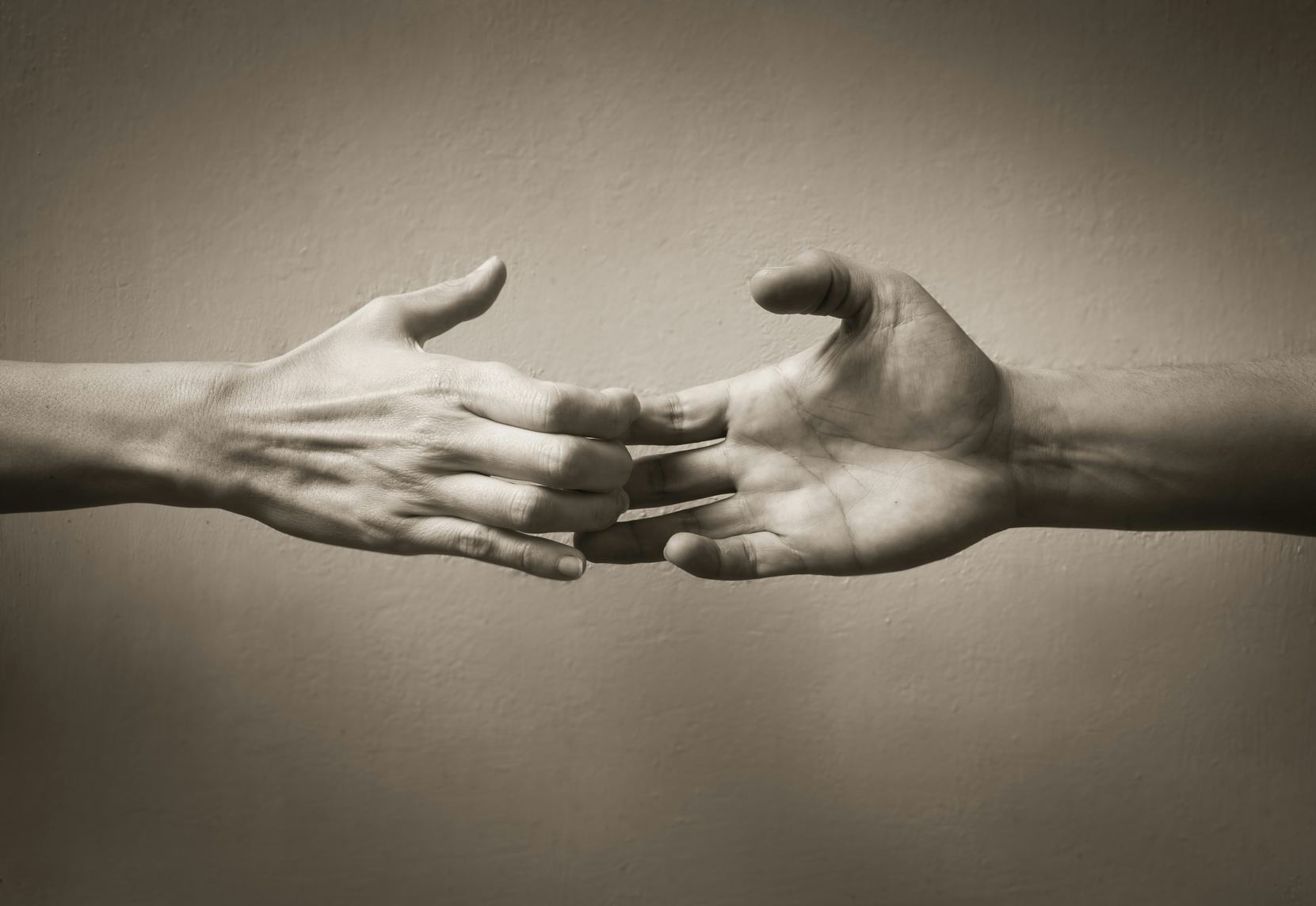 “If you approach your partners with a glare, tight lips, and short words, they may feel insecure,” says Dr. Jake Porter, a licensed professional counselor based in Houston.
“If you approach your partners with a glare, tight lips, and short words, they may feel insecure,” says Dr. Jake Porter, a licensed professional counselor based in Houston.
“The key here is to realize that each of us is responsible not only for the words we say, but also for how we say them,” he adds.
It's a good idea to practice paying attention to the non-verbal communication you carry with you before approaching your partner. You may be asking yourself, “What is my body language saying right now?”
Be an active listener
Active listening is an essential component of healthy relationships because people need to feel heard and understood in order to feel protected and accepted. “Active listening is when you let go of defenses and distractions and truly accept what your partner is telling you,” explains Dr. Isabelle Morley, a licensed clinical psychologist in Massachusetts.
“The ability to actively listen means that whenever fears or problems arise, your partner will feel comfortable telling you about it,” she adds. “Instead of the problem getting worse or your partner getting offended, you can fix it quickly and easily.”
“Instead of the problem getting worse or your partner getting offended, you can fix it quickly and easily.”
Here are a few ways to practice active listening:
- non-verbal signs of listening, such as smiling, nodding, and maintaining eye contact
- asking partner questions or asking for clarifications
- summarize or reflect on what has been said
Practice transparency
Transparency is an important part of building trust and emotional security. By practicing transparency, you eliminate the potential feeling that you or your partner are hiding something from each other.
While you don't have to share every part of your life with your partner, "general openness about your thoughts, feelings, and actions is a good way to build trust, communication, and security," says Morley.
Give your partner the benefit of the doubt
Giving your partner the benefit of the doubt means not being judgmental and instead wanting to know the motivation behind their behavior. “Most people’s motivations are subconscious and often tied to their own baggage they bring to the relationship,” says Baltimore-based certified imago therapist Rabbi Shlomo Slatkin.
“Most people’s motivations are subconscious and often tied to their own baggage they bring to the relationship,” says Baltimore-based certified imago therapist Rabbi Shlomo Slatkin.
“When we stop judging and making up stories about why our partner did what they did, we begin to favor them from a position of compassion and understanding,” he adds. "We may not agree with them, but we can at least create a safe environment without confrontation."
Promote accountability and see things through
Seeing things through shows your partner that you are reliable and value the relationship. When you do and accomplish something, you actively build trust by demonstrating your loyalty to your partner. However, completion does not have to happen overnight.
Even when you take small steps, letting your partner see your continued efforts shows them your commitment to the relationship. Try to keep your partner in the loop, as this will also help you be accountable.
Consider couples or family therapy
A mental health professional's perspective can help people in relationships increase emotional security by focusing on conflict resolution rather than the conflict itself.
"Couple therapy promotes emotional security by helping couples understand how they work together as a system," explains Porter. “When I work with couples, I am less interested in the content of what they are fighting about than in the process of0092 as they quarrel."
"Focusing on the content might help them the moment I'm mediating an argument, but they'll just go back to therapy the next time they can't agree," he adds. "Instead, I want to help them create a new conflict approach process to set them up for success as life continues to challenge them."
Summing up
Emotional security is the key to a healthy and happy relationship. There are countless ways to create emotional security, and some may work better for you than others. Try a few of the ways we've identified and decide which works best for you and your partner.
Although it may take time to build emotional security, the result is a relationship built on mutual trust, respect and unconditional support. Not only will you find yourself being seen, heard and understood, but you will also feel more connected to yourself and your partner. Be patient with each other, and then watch the benefits of openness and vulnerability unfold.
Not only will you find yourself being seen, heard and understood, but you will also feel more connected to yourself and your partner. Be patient with each other, and then watch the benefits of openness and vulnerability unfold.
If you find an error, please highlight the text and press Ctrl+Enter .
How to determine dependent relationships
05.05.2020
Love is a wonderful feeling, but sometimes people confuse love with neurotic addiction.
All people, as you know, are constantly in social relationships. We enter into these relationships all the time: when we communicate with our family, when we enter into friendships, when we contact other people in transport or in the store, when we are in a working relationship, and of course, when we find a mate.
Dependent relationship is a special state of mind when the emotions of one person are so strongly connected with the behavior of another that he can no longer control himself, his feelings and behavior.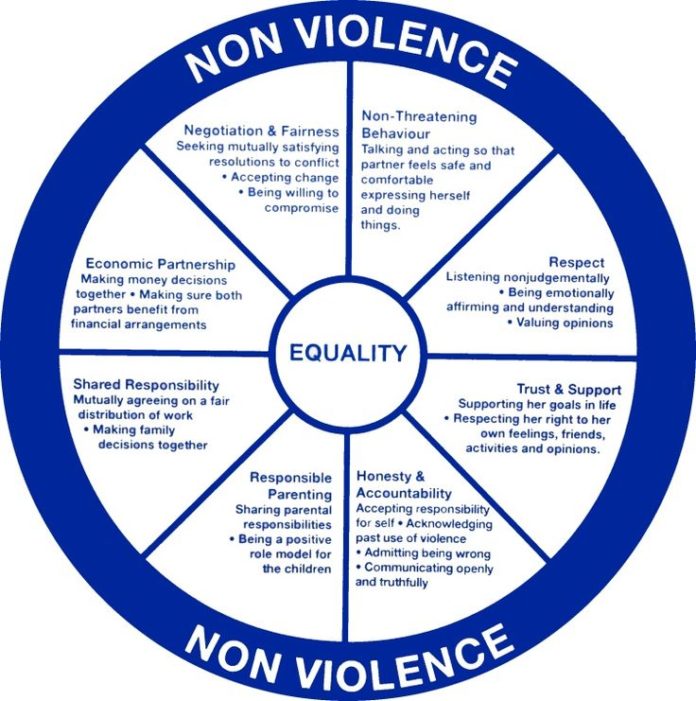 Absolutely everything: dreams, desires, goals, the meaning of life, is connected with the object of unhealthy “love”. The latter acts as a manipulator and either consciously or subconsciously develops in the "victim" dependence on himself.
Absolutely everything: dreams, desires, goals, the meaning of life, is connected with the object of unhealthy “love”. The latter acts as a manipulator and either consciously or subconsciously develops in the "victim" dependence on himself.
The reason why a person is inclined to enter into a dependent relationship may lie in low self-esteem, lack of concentration on one's own "I", ideas about unconditional love, or in the usual example of close relationships.
In psychology there is such a thing as a manipulatory triangle. It consists of Persecutor, Victim and Rescuer . Its creator, oddly enough, is always Victim .
This is a person who has shifted the responsibility for his life to others, and sincerely believes that the Persecutor is the cause of all her failures, the root of all evil in her life. Usually in such relationships there is also the so-called Rescuer .
This game is destructive, but there is a certain "benefit" for all participants in it .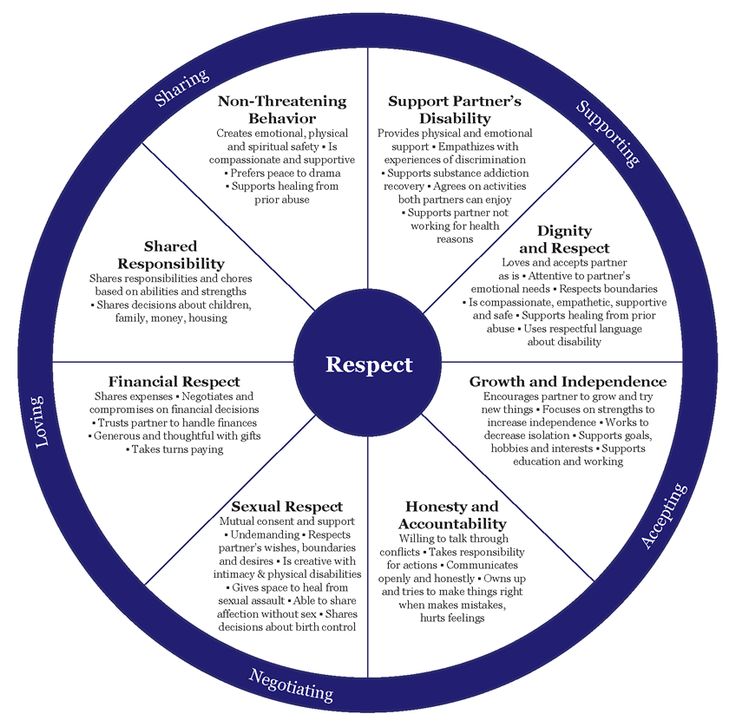 Otherwise, they would not have participated in it. Remember that you can always voluntarily leave the wrong relationship.
Otherwise, they would not have participated in it. Remember that you can always voluntarily leave the wrong relationship.
Basically, it is the behavior of the family of origin that influences what kind of relationships we choose as adults. For example, if in the parental family it was “accepted” to speak in raised tones, assault or elements of psychological violence, then the child in this family forms the idea that true love is impossible without such manifestations. Finding the right "partner", who most likely received a similar experience of relationships in the family in childhood, one enters into a kind of psychological game, constantly switching roles between the Victim, the Persecutor and the Rescuer. At the same time, it’s hard for both of them in these relationships, but they cannot refuse them for a number of reasons: they don’t know how to do it differently, or they get a kind of pleasure from being in such relationships. At the same time, the main difficulty is that it is quite difficult to understand that you are in a dependent relationship.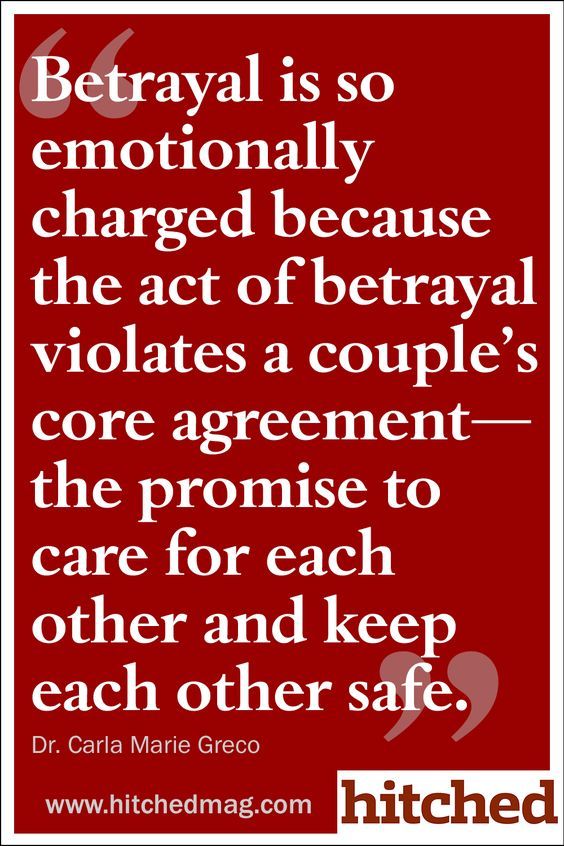 At the same time, a certain proportion of dependence is manifested in almost any relationship, especially in their first stages of formation.
At the same time, a certain proportion of dependence is manifested in almost any relationship, especially in their first stages of formation.
By what signs can we understand that this is precisely a dependent relationship?
- Confused Liability
In a healthy relationship, each participant is primarily responsible for their condition and satisfaction of their needs, without trying to take on more or shift responsibility to another. Everyone is primarily responsible for himself.
Responsibility is confused in dependent relationships. We want someone to take responsibility for our security, material well-being and happiness. Or they themselves tend to take excessive responsibility for another. In some respects this manifests itself in the distribution of responsibility. For example, a woman expects a man to financially provide and support her, and for this she will be responsible for the house, life and children - this is a typical example of confused responsibility, albeit so common that it is almost a variant of the norm.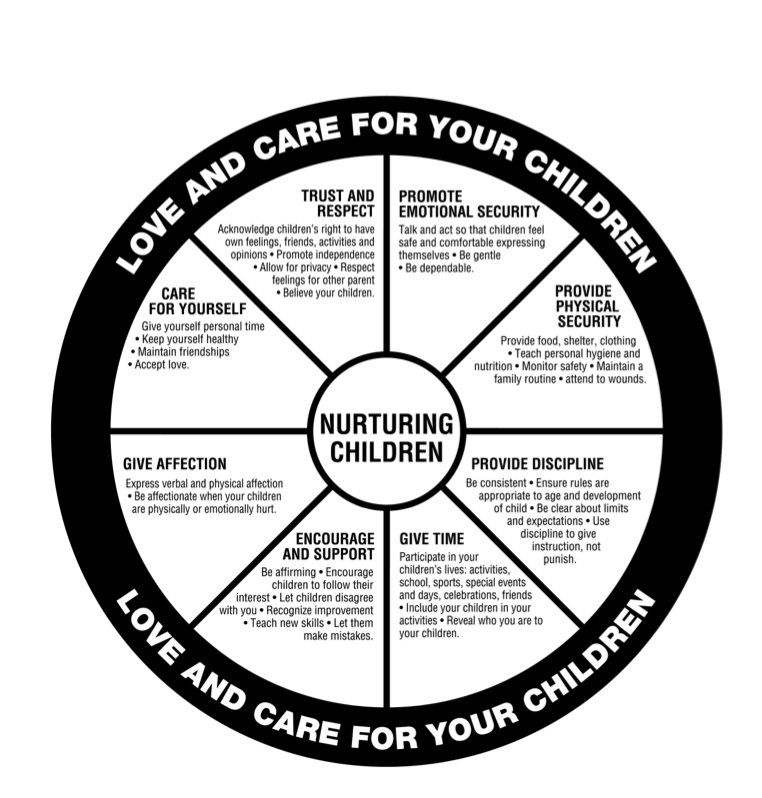 In more severe cases, we shift responsibility for all aspects of our well-being to a partner, or we ourselves take responsibility for saving another. Or, which is also often found, both at the same time. For example, a woman can save her alcoholic husband for years, suffering in this relationship, but hoping that sooner or later her husband will stop drinking and take responsibility for her and the family.
In more severe cases, we shift responsibility for all aspects of our well-being to a partner, or we ourselves take responsibility for saving another. Or, which is also often found, both at the same time. For example, a woman can save her alcoholic husband for years, suffering in this relationship, but hoping that sooner or later her husband will stop drinking and take responsibility for her and the family.
- Blurred borders
In healthy relationships, we are sensitive to our partner's psychological and physical boundaries and are able to assert our boundaries. We feel in time when our actions or words cross the boundaries of what is acceptable for another person. At the same time, we ourselves are well aware of our boundaries and are able to say “no” at the moment when we do not like what the other person does or says. This principle works the same in all areas.
Boundaries are blurred in dependent relationships.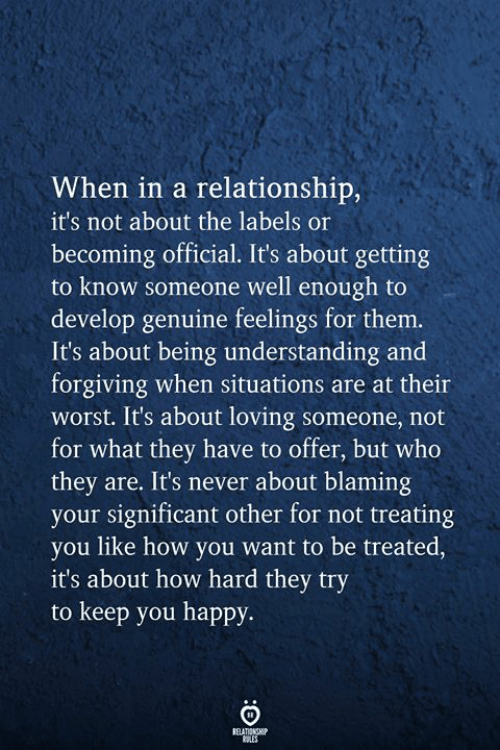 We lose the ability to understand where my territory ends and another person's territory begins. A confluence is formed in which we often follow one of two scenarios: we either sacrifice our needs and autonomy and lose the ability to say no, in which case our boundaries are systematically violated; or we ourselves, without encountering resistance, increasingly violate the boundaries of another person and deprive him of the right to independence.
We lose the ability to understand where my territory ends and another person's territory begins. A confluence is formed in which we often follow one of two scenarios: we either sacrifice our needs and autonomy and lose the ability to say no, in which case our boundaries are systematically violated; or we ourselves, without encountering resistance, increasingly violate the boundaries of another person and deprive him of the right to independence.
- Role hierarchy
At first, such a game can be quite pleasant and exciting
In healthy relationships, everything is very simple - they are built on equal terms, from the position of "adult - adult". Most of the time, the participants in such relationships manage to respect their partner, to reckon with his opinion. In such relationships, we always negotiate with each other as two adult independent people. We are forced to seek a compromise, although this is not always pleasant.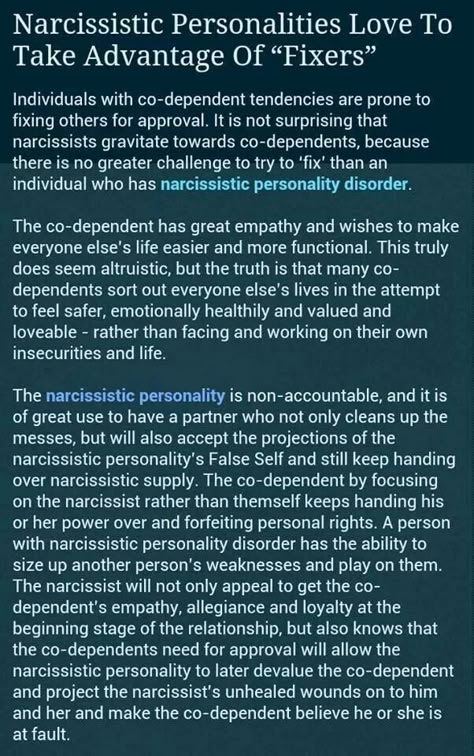
In dependent relationships, child-parental roles are included in us - one of the partners takes the role of a defenseless and weak child, the second becomes a strong, guardian adult. At first, such a game can be quite pleasant and exciting - the dominant partner feels his power and strength, the subordinate feels cozy security and no need to decide anything, because the boss will take care of everything. But if such a distribution of roles becomes fixed and becomes chronic, then a rigid hierarchy of dominance-submission is built in the relationship. In such conditions, an adult turns into an aggressor, and a child becomes a victim. A strong hand very quickly begins not to protect, but to cripple, because the lower partner has lost the ability to defend its boundaries, and the upper one, without meeting resistance, can no longer cope with uncontrolled aggression. This is how domestic physical violence develops in family relationships and psychological violence in friendly and business relationships.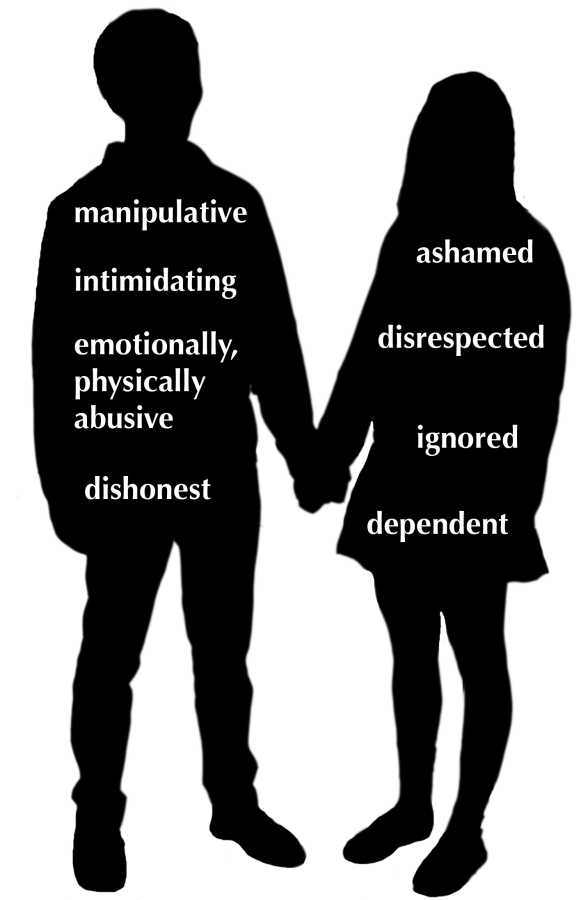
- Prohibition on awareness and expression of feelings
In a healthy relationship, feelings are legalized, partners can freely talk to each other about their emotional reactions. At the same time, all feelings are legalized - both positive and negative. Partners are able to directly express annoyance, resentment, jealousy and other emotions to each other at the moment when they experience them, without excessively suppressing or ignoring their reactions. With this approach, negative emotions do not stagnate, but circulate freely in a couple and heal relationships: based on their emotional reactions and the reactions of the other, partners build boundaries and learn to negotiate.
Emotions are suppressed in dependent relationships. Talking about your true reactions is forbidden or unsafe. An honest conversation about feelings and experiences is perceived as impossible or unacceptable. Therefore, from time to time, uncontrolled emotional outbursts occur - quarrels, scandals, episodes of violence, etc. However, they do not lead to a real resolution of emotional tension, but only aggravate the situation, since feelings of shame and guilt are added to the accumulated negative experiences, which, in turn, are also suppressed and further poison the relationship.
However, they do not lead to a real resolution of emotional tension, but only aggravate the situation, since feelings of shame and guilt are added to the accumulated negative experiences, which, in turn, are also suppressed and further poison the relationship.
- Distorted "I"
In dependent relationships, we are seen as weak, unattractive, incapable of anything - and as a result, if such relationships continue for a long enough time, we ourselves begin to perceive ourselves in this way, and this is how we become in reality.
In healthy relationships, we get enough support, attention, acceptance. As a result, we are able to notice and accept those qualities and resources that another person sees in us, and they begin to manifest themselves in reality and life.
- Bad internal condition
In healthy relationships, our condition is good most of the time. For a partner, we experience mostly positive emotions - love, gratitude, tenderness, respect, etc.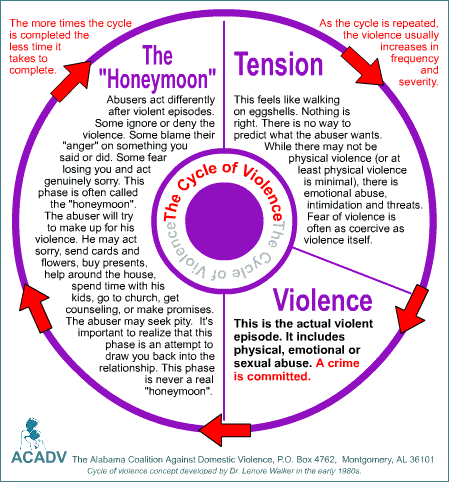 However, this does not mean at all that we do not get upset at all, or do not quarrel with a partner. On the contrary, the ability to defend one's position, express aggression, conflict, and constructively resolve conflicts are all characteristics of a healthy relationship.
However, this does not mean at all that we do not get upset at all, or do not quarrel with a partner. On the contrary, the ability to defend one's position, express aggression, conflict, and constructively resolve conflicts are all characteristics of a healthy relationship.
In dependent relationships, most of the time we are in a bad state - depressed, depressed, anxious, embittered. At the same time, due to the influence of the previous factors, it is difficult for us to realize our feelings and correlate them with needs. In other words, we feel bad, but we do not understand what exactly we feel and do not understand why.
- Insulation
Healthy relationships support us and help us grow. At the same time, our life is not limited only to these relationships. In healthy relationships, we maintain family, friendship, and professional ties outside of the relationship. Healthy relationships fit harmoniously into our lives and do not isolate us from other people.
In dependent relationships, we drop out of life and lose the ability to find and receive support outside of the relationship. Gradually, our contact with other people is reduced to a minimum, supporting family, friendship and professional ties are destroyed, and we find ourselves isolated.
- Fear of leaving a relationship
In a healthy relationship, we feel free to end it at any time as we wish. The only reason why we continue to stay in these relationships is because we feel good in them and we ourselves want them to continue.
In a dependent relationship, we feel bad, but we do not feel free to leave - we feel that we are bound by this relationship. We have no choice but to remain in them, or the rest of the choices we see seem even less pleasant to us.
In dependent relationships, these signs appear quite often and vividly. Of course, it is difficult to find the “ideal” of a healthy relationship, perhaps some elements of these signs can sometimes “slip”, for example, in a quarrel. But in a healthy relationship, you can always discuss each other's feelings and emotions and realize why this situation happened.
But in a healthy relationship, you can always discuss each other's feelings and emotions and realize why this situation happened.
In a situation where you understand that your relationship can be called dependent, there are two options for their development: you can change this relationship or get out of it. At the same time, it is important to understand that if you want to change the quality of your relationship, then in this case both partners must direct their efforts for this. Remember, you can't change another person unless they want to. In any case, whatever decision you make, it is important to seek help from a specialist. Without professional external help, it is often difficult to understand what is happening and make the right decision.
The specialist will help you, first of all, decide whether it is worth working on improving the relationship (ideally, this should be a joint decision of both partners), or whether it is necessary to work on a gradual, as safe way out of these relationships.

